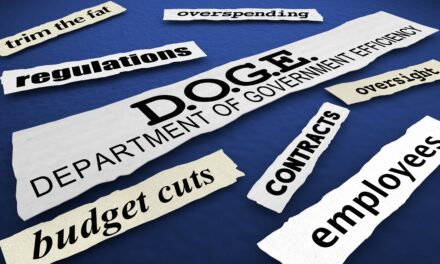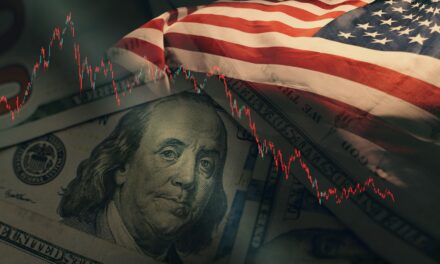Two years ago, I set out to uncover (and profit) from Washington’s lucrative insider trading.
But the corruption ran far deeper than even I expected…
Watch today’s video for the full story:
Video transcript:
Welcome to Moneyball Economics.
I am excited today to share with you the results of a two-year journey to uncover insider trading.
When I first set out on this journey two years ago, it wasn’t to point a finger, it wasn’t to judge people that I could prove of doing insider trading … it was much more mercenary than that.
I wanted to tap into it.
I wanted to take advantage of the advantages these people had, and guess what? There is insider trading and I can consistently determine where it is. Take a step back though. The premise behind Moneyball economics is that we want to be data-driven in our investing decisions.
The problem we face is that the data sources, well, conventional data often falls short, and so we have to spread a net pretty wide and uncover the data streams that are going to give us real information, that are going to get us closer to getting a finger on the pulse of what’s really going on.
An example of this is the way I track hiring at individual companies. My idea here is that I want to follow what a company does, not what they say. And quite frankly, if they’re growing, they’re going to be hiring more. When a company isn’t growing, they’re hiring less … or worse — firing.
And so this is great information, that I can use to my advantage in real-time.
That’s what I thought I was doing two years ago when I set out to capture … trading by members of Congress.
You may not know this, but every senator and every representative has to declare when they make a trade, whether it’s a stock, a bond, a fund, you name it. When they are buying and selling a financial instrument, they have to report it within 30 days.
Hey, I know that there’s insider trading.
I know the politicians are corrupted … so I set out to basically tap into best of breed.
So I compiled a ten-year database of every single action coming out of a member of Congress, and it refreshes regularly. Once I had that data, I was excited. I was convinced I was going to uncover obvious areas of insider trading. Well, the short answer is I did uncover (and am regularly uncovering) insider trading, but it wasn’t as blatant and obvious as I thought it would be.
I mean, I thought I was going to walk in and I’d see representative Jane Doe … she’s on the house committee energy Committee, and she’s got a lot of oil company stocks. She’s got Exxon, she’s got Shell, and then one day she dumps it all. It’s not quite that blatant. It’s there. There is insider trading, but it’s a lot more subtle. And once I knew that it was going to be a lot more hidden, I set out to uncover it.
I got my antenna up and I started investigating.
One of the first things I uncovered was more the casual, I don’t want to say insider trading, but the access to information that the “powers that be” have.
It’s not different, for example, if you were in the tech industry and you went to a conference and you were talking to people over cocktails … and you heard about something exciting having to do with NVIDIA’s latest blah, blah, blah.
It’s information that hasn’t quite leaked out into the general public. Is it private? Is it insider? Is it hidden? Not really, but it’s not really accessible by someone walking in off the street. Very similar.
Let me take you back to 2021, and what I uncovered…
So in 2021, we still have 0% interest rates, and then I noticed something like rats leaving a sinking ship. Every member of Congress starting in December, 2021 and peaking in January, 2022, they were dumping their bond holdings, whether it was outright bonds or bond funds, you name it, they were bailing on bonds.
Guess what? A couple months later, that’s when the Federal Reserve started raising interest rates.
So if at that time you were holding bonds, you’d have lost a lot of money. Is this an example of insider trading? Maybe. Maybe you’re in the hallway … it’s like water cooler chat.
“Hey, did you know that Chairman Powell was up on Capitol Hill today?” I wonder what they’re talking about. We’ve heard the rumor mills interest rate hikes. But it’s about the access to information and taking advantage of it, knowing what that information means as well.
But there’s even more direct insider trading. There’s an example though that bothers me, frankly. Because it’s a version of bribery.
I found an example, I don’t want to name names and I don’t want to point fingers, but let me describe what I uncovered. I found an individual who did not actively trade. In fact, I think they traded maybe six, seven times, but what was interesting is number one, they were trading big dollars for their relative holdings, big dollars.
That caught my attention. When you have Nancy Pelosi, quarter-billion dollars [in net worth] and you buy a hundred thousand dollars of stock, that’s meaningless. When you have, say, $400,000 and you buy a hundred thousand dollars or 25% of your portfolio, that’s meaningful. You basically have some visibility to something.
So I found somebody, I looked at this and it was really interesting, and a couple of the clues that I’ll share with you…
One, relatively large trades. Two, they were buying and selling unknown stocks.
These were stocks that nobody else in Congress was buying, not the Nvidia of the world that everybody gets excited about. These are stocks not only that nobody knew about (I’d never heard them). They were also really small cap companies, very thinly traded, but here we were. This individual was buying and selling.
The third interesting clue was impeccable timing. They were tripling their money.
They were infrequently trading, but every time they were doubling and tripling their money, and it was impeccable timing. The stock for a year or two would be flat, and all of a sudden, right when it’s going up or right before it goes up, they buy in and boom, it goes parabolic, and then a couple months later they get out and boom, it comes down.
Now, how do you get this great timing on unknown stocks?
Well, the answer is either right there, or a couple steps removed from that. Blatant, “I’m on a committee watching over them.”
Maybe “I’m on a committee that’s watching over a company that’s connected to them.” Could be.
I think it’s deliberate.
I think that because they were buying and selling over the course of a couple years that they were being given information in return for benefits, shall we say, the “quid pro quo,” and it’s very easily done, right?
I can be a lobbyist and I can come in and I can say, “Thank you, Senator! Really appreciate your support on this bill. By the way, I’ve heard some really interesting things about Acme. You should check them out.”
Then a couple months later, same lobbyist comes back. “That stuff about Acme, I’m not so sure it’s hot anymore. Okay?” The reason that I suspect that this is bribery is this company, these two companies that were being purchased and traded are so thinly traded.
It would not take very much to do a pump and dump.
It would take less than a million dollars to get this stock to double or triple because not a lot of volume of shares are being traded.
It’s easy to make a move and push a stock up, and then you stop buying. The price comes right back down. There are examples of this over and over and over, yes, our politicians are bribing, they’re being bribed, and it’s being done in a very subtle way.
So I’ve been analyzing all these moves.
I’ve been looking for the ones that stand out that are, everybody loves Nvidia, everybody’s in Nvidia.
That’s not where you’re going to make your money.
Oh, you might get 15% where you’re going to get your money. Are some of the more obscure moves or some of the moves that seem to be linked to scuttlebutt and well, since it is data and it’s persistent and ongoing,
I think there’s something here to tap into and I look forward to sharing with you the results of my efforts.
Remember, we’re in it to win it. Zatlin out!

Andrew Zatlin
Editor, Superforecast Trader & Moneyball Economics





